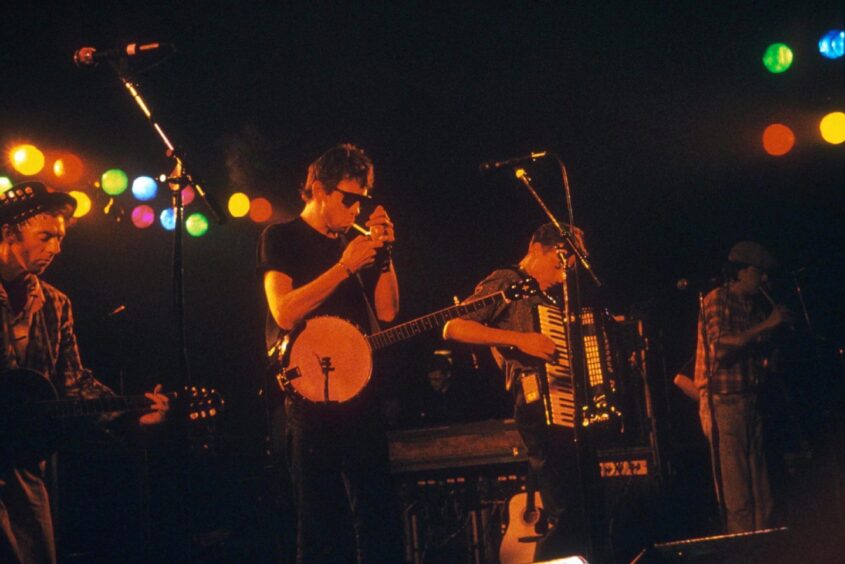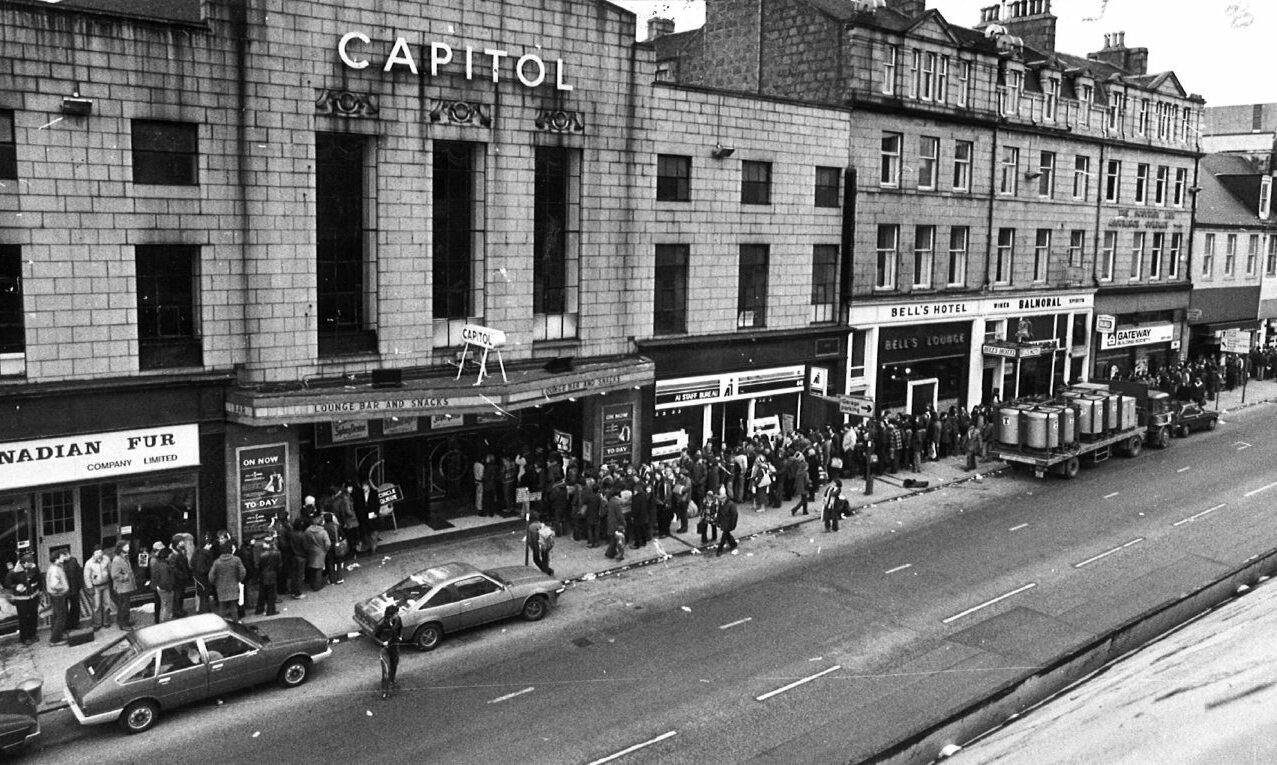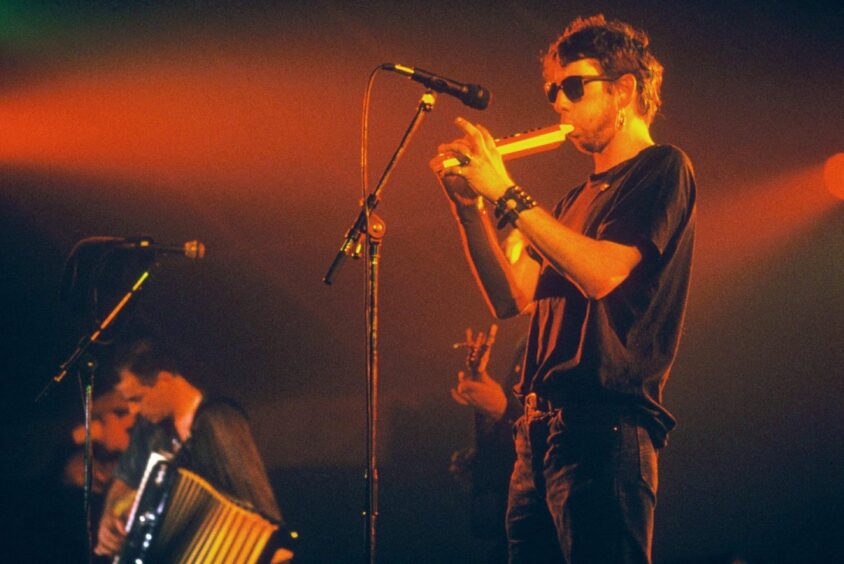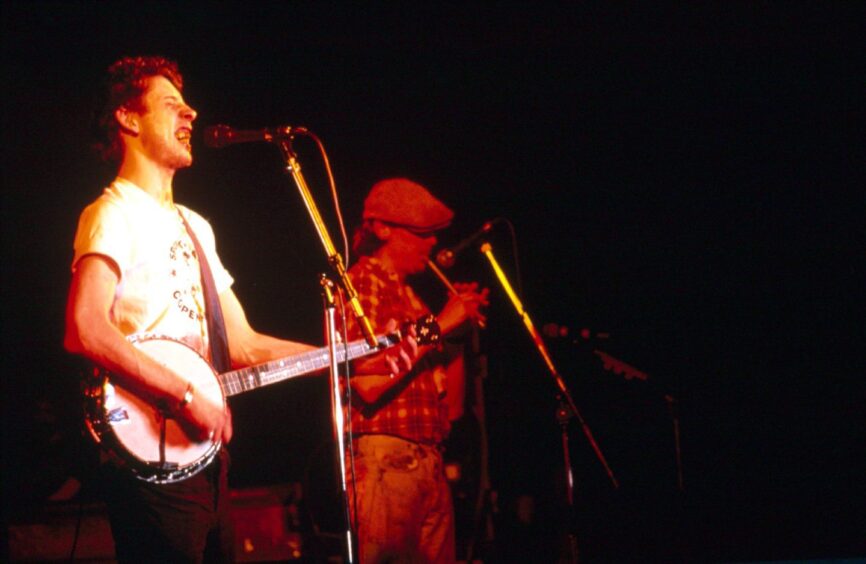
The Pogues didn’t venture north of Glasgow much after they played to an Aberdeen crowd in 1988.
They played Aberdeen’s Ritzy in 1985, and the Capitol Theatre in March, 1988.
Although the band would go on to cement themselves as one of punk music’s most celebrated groups, Shane MacGowan and the rest of the Pogues created a raucous atmosphere which proved a bit much for the Evening Express reviewer at the Capitol gig.
Although, it seems the fans may have had their part to play in how the wild show went…
The reviewer wrote: “The Pogues trashed their reputation as a good live band as firmly as their fans trashed the front rows of seats at the Capitol.
“As soon as they came on, the stage was rushed both downstairs and, more dangerously, up in the circle.
“Combined with a sound system which varied between poor and atrocious, it effectively ruined any chance of enjoying the show.
“And their choice of material, most from their last two albums, was predictable, with few of the more interesting numbers which take the Pogues above the level of rabble-rousers.”
Insight from roadie-turned-bassist on Shane’s songwriting
But the EE’s Citysound reporter Paul Massey took the opportunity to grab an interview with Pogue roadie Darryl Hunt, who had stepped in to replace bassist Cait O-Riordan when she quite the band two years earlier.
He offered some insight into the thoughts of Shane MacGowan at the time, after criticism of the band for ‘going soft’.
Their third album, If I Should Fall From Grace With God was in the charts, following the success of Fairytale in New York.
The album’s title track had been released as a single, amid come critics’ claims that the band was losing its hell-raising image.
Darryl said: “It’s not intended, and we have always tried to perform well live. it’s just that the group is developing, and Shane is getting the chance to write more intimate songs.
“It’s something he’s always done but it’s just coming through now more.”
Darryl also described the band as very close.
“We were always close-knit. I was there when Cait quit and had been playing before, so we started rehearsing for a tour and it all went well.
“Once you get involved, you stay involved.”
Sadly the band never played again in the north or north-east.
You can read more about the news of Shane MacGowan’s death here.




Conversation